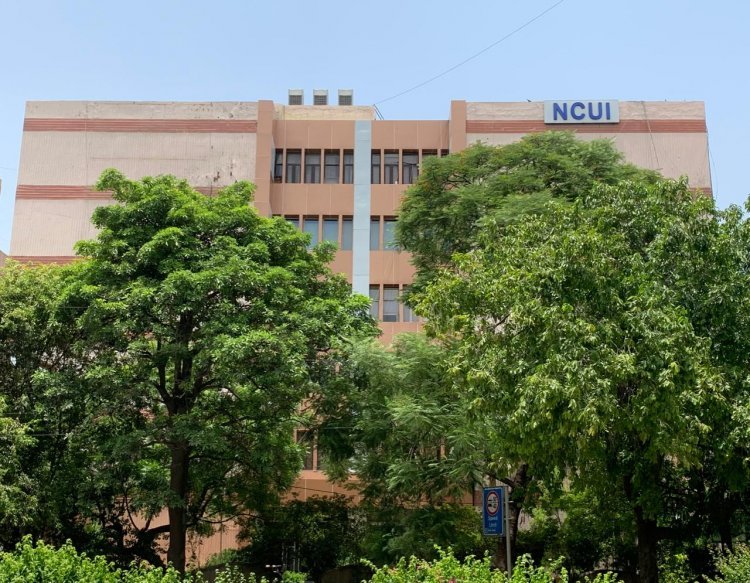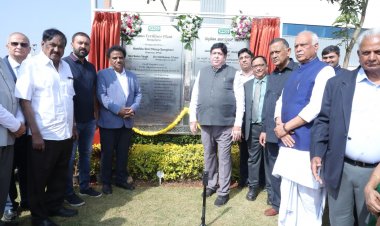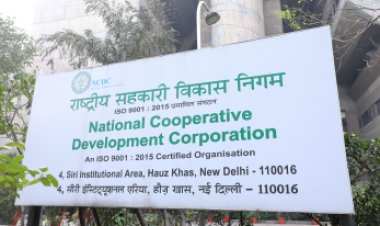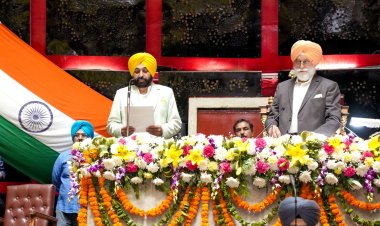NCUI finds draft amendments to Multi-State Cooperative Societies Act 2002 not in alignment with cooperative principles, urges govt for a re-look
In line with the Cooperation Ministry’s top priority right from the beginning to amend MSCS Act 2002, the government came up with the draft amendments and sought the opinions of the national federations on their various provisions. The draft amendments are related to elections, governance, recruitment, transparency and efficiency in MSCS. NCUI organized a conference in hybrid mode to discuss the provisions. The MSCS Amendment Bill is listed among the ones to be presented in the Monsoon Session of the Parliament.

The National Cooperative Union of India (NCUI) has differed from some of the provisions of the draft amendments to the Multi-State Cooperative Societies (MSCS) Act 2002 circulated by the government. The draft amendments are related to elections, governance, recruitment, transparency and efficiency in MSCS. NCUI says that these provisions are not in accordance with the democratic and autonomous principles of cooperatives.
In line with the Cooperation Ministry’s top priority right from the beginning to amend MSCS Act 2002, the government came up with the draft amendments and sought the opinions of the national federations on their various provisions. NCUI organized a conference of its member institutions recently to discuss the provisions. The MSCS Amendment Bill is listed among the ones to be presented in the Monsoon Session of the Parliament.
According to an NCUI press release, its members came up with their wide-ranging comments on some of the provisions, which they found restrictive and not aligning with cooperative principles. One of the provisions proposes that the shares of the cooperatives shall not be redeemed without prior approval of the government, and the redemption of shares shall be on face value or book value of shares which is agreed by the authorities. The members felt that as per the cooperative principles, the shares of cooperative societies were issued and redeemed on face value only. They felt the shares of cooperatives were neither tradable nor listed on stock exchanges. They further felt that the provision for refund of share capital on book value to the government authorities was not practical to implement as it was against the principle of equality.
Relating to another provision, the members felt that the proposed provision in the draft amendment for restriction on employment of relatives of sitting directors of multi-state cooperative societies was an infringement of the fundamental right, under the Constitution, to earn a livelihood.
Another provision says that a member who has been a director of the Board of any MSCS or bank, where such a board has been superseded, shall not be eligible to be elected as a director of the board of another MSCS or cooperative bank for a period of five years. The members felt that the proposed clause was arbitrary and against the principles of natural justice that the cooperative principles emphasize.
As for the provision that the Government of India may establish a Cooperative Rehabilitation, Reconstruction and Development Fund for the revival of sick MSCS wherein those MSCS which have been in profit for three years may credit fund, the members felt that this was an additional burden for profit-making MSCS and would hamper their requirements of funds for further business development.
Regarding another draft provision related to the proposed clause to appoint auditors from the panel of RBI for non-credit MSCS, the members felt this would adversely affect the functioning of such societies as the nature of the business conducted by MSCS and MSC banks were entirely different. So, they opined, the existing provision in the MSCS Act 2002 should be retained.
Another clause proposes that the Cooperative Education Fund has to be maintained by the Central Government and the proceeds may be used for cooperative education and training through NCUI or any other agency as decided by the Central Government. Regarding this, the members felt that the management of the fund by the government would diminish the importance of NCUI, which is an apex body of the cooperative movement with a focus on cooperative education and training. The existing provision of NCUI being given the authority to collect and manage the fund as present in the MSCS Act, they felt, must remain unchanged.
In the wake of the above, the cooperative fraternity present at the conference felt in general that the government should have a re-look into some of the restrictive provisions of the draft amendments so that the democratic growth of the cooperatives is not hampered. NCUI has already compiled the comments of cooperative representatives and sent them to the Ministry for consideration.
At the recent conference of ARDBs in which Union Cooperation Minister Amit Shah was present, NCUI President Dileep Sanghani mentioned the holding of this conference to seek opinions of the representatives of cooperative organizations who are members of NCUI, on the draft amendments. He further said that the government should seriously consider the above issues before the MSCS Amendment Bill is passed in Parliament.



 Join the RuralVoice whatsapp group
Join the RuralVoice whatsapp group







































